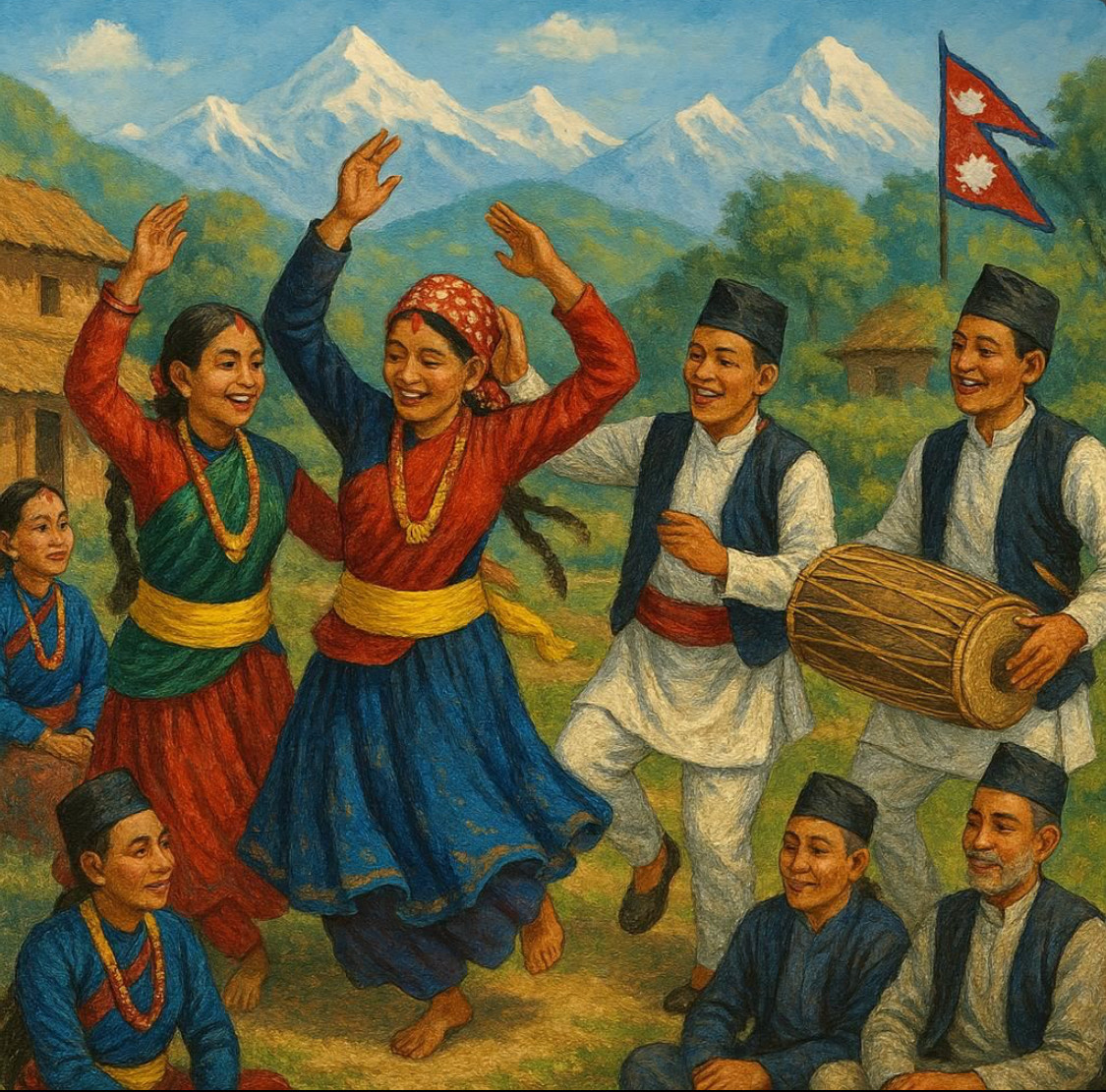
Cheerful People Versus Fearful People
Citizens nurtured by democratic principles radiate an undeniable vitality, their engagement fueling a vibrant public square. They champion open discourse, challenge orthodoxy, and actively shape their nation's destiny. Their collective confidence, therefore, fosters a culture of innovation and resilient civic trust. This environment empowers individuals to not only participate in governance but to see themselves as stewards of their society.
Free from the fear of reprisal, they can voice dissent, question authority, and experiment with new ideas, whether in politics, science, or art. This proactive engagement transforms the public square from a mere gathering place into a dynamic crucible where ideas are forged and progress is born. It's a system where the government is not a distant, imposing entity but a reflection of the people's will, ensuring that a nation's strength is built on the shared foundation of its citizens' trust and creativity.
Conversely, populations subjected to despotism exhibit a palpable apprehension, their spirits subdued by the state's omnipresent shadow. Citizens meticulously measure their words, suppress dissent, and retreat from public life, a strategic withdrawal for personal safety. This pervasive dread, ultimately, paralyzes societal progress and strangles the very ingenuity required for a nation to thrive. In such a climate, the state’s absolute control fosters an atmosphere of paranoia and self-preservation.
The fear of surveillance and punishment becomes a constant, invisible burden, compelling people to prioritize personal safety over collective good. As a result, critical thinking and intellectual risk-taking are replaced by conformity and silence.
This enforced passivity not only stifles innovation but erodes the social bonds that are essential for a healthy society. A nation's greatest resource—the intelligence and spirit of its people—is thus left untapped, its potential suffocated by the very regime that claims to lead it.
Cheerful people, in their inherent optimism, often present as the bedrock of a functioning democracy. They champion open dialogue, embracing diverse perspectives as essential components for a stronger collective.
This group embodies a fundamental belief in human progress and the power of collaboration, viewing societal challenges not as insurmountable obstacles, but as puzzles awaiting a shared solution.
Their disposition cultivates an environment where compromise flourishes and public discourse thrives, enabling a constant recalibration of governance to better serve the populace. A democratic system, in this light, reflects the cheerful person's spirit: adaptable, inclusive, and fundamentally hopeful about the future.
Conversely, fearful individuals, prone to anxiety and suspicion, often gravitate towards the perceived stability of despotism. They see the world as a dangerous, unpredictable place requiring a strong hand for control.
This mindset prioritizes order over liberty, viewing dissent as a threat and individual freedoms as potential vulnerabilities. For them, a powerful, centralized authority offers a comforting shield against perceived chaos, even at the cost of personal agency. In this context, despotism mirrors the fearful person's psyche, seeking to eliminate uncertainty through absolute control and suppressing any expressions of individuality that might challenge the established hierarchy.
Consider the analogy of a garden. A democracy, nurtured by cheerful people, resembles a diverse, vibrant ecosystem. It allows a multitude of plants—different ideas and opinions—to grow freely, with healthy competition for sunlight and resources.
This rich biodiversity makes the garden resilient and dynamic, capable of adapting to changing seasons and unforeseen challenges. The gardener, representing the government, provides guidance and maintenance, not dictating which plants may grow, but ensuring a suitable environment for all.
In stark contrast, a despotic regime, forged by fearful people, resembles a meticulously manicured, single-species garden. Here, the gardener allows only one type of plant to flourish, ruthlessly eliminating all others as weeds. This environment appears pristine and orderly, yet it lacks resilience.
A single pest or disease could wipe out the entire monoculture, leaving it vulnerable and lifeless. The fear of external threats drives this control, stifling diversity and ultimately making the system brittle and unsustainable.
So, the choice between these two forms of governance hinges on a society's prevailing disposition. A culture of cheerfulness fosters a belief in self-governance and shared responsibility, seeing complexity as a source of strength.
This optimistic outlook builds trust, the essential currency of any democratic society. People trust their neighbors, their institutions, and the process of collective decision-making, even when they disagree on specifics.
Fear, conversely, erodes this trust. A society dominated by fearful people becomes atomized, with individuals viewing each other with suspicion. They require an external force to maintain order, surrendering personal power for a sense of security. This dynamic perpetuates a cycle of control and obedience, where the leader's authority becomes paramount, and the public's voice dwindles into silence.
As we observe the global landscape, the fundamental struggle between these two mindsets becomes apparent. Nations embracing democratic principles are often driven by a spirit of collaboration and optimism, while those under autocratic rule frequently prioritize stability above all else, born from a place of deep-seated fear.
The path forward for any nation, therefore, depends on whether its citizens choose hope over apprehension, confidence in their collective abilities over reliance on a single, controlling authority.
Nepal's complex journey toward prosperity demands cheerful citizens and leaders; their optimism provides the essential resilience for overcoming entrenched challenges and political inertia. Such spirit fuels perseverance, transforms setbacks into opportunities, and inspires collective action across diverse communities. A cheerful disposition, therefore, becomes a strategic asset, fostering the unity and unwavering determination necessary to build a stable, thriving nation.